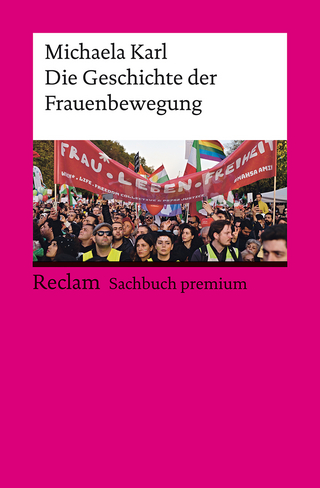
Mao's Bestiary
Medicinal Animals and Modern China
Seiten
2021
Duke University Press (Verlag)
978-1-4780-1190-3 (ISBN)
Duke University Press (Verlag)
978-1-4780-1190-3 (ISBN)
Liz P. Y. Chee complicates understandings of Chinese medicine as timeless and unchanging by historicizing the expansion of animal-based medicines in the social and political environment of early Communist China.
Controversy over the medicinal uses of wild animals in China has erupted around the ethics and efficacy of animal-based drugs, the devastating effect of animal farming on wildlife conservation, and the propensity of these practices to foster zoonotic diseases. In Mao's Bestiary, Liz P. Y. Chee traces the history of the use of medicinal animals in modern China. While animal parts and tissue have been used in Chinese medicine for centuries, Chee demonstrates that the early Communist state expanded and systematized their production and use to compensate for drug shortages, generate foreign investment in high-end animal medicines, and facilitate an ideological shift toward legitimating folk medicines. Among other topics, Chee investigates the craze for chicken blood therapy during the Cultural Revolution, the origins of deer antler farming under Mao and bear bile farming under Deng, and the crucial influence of the Soviet Union and North Korea on Chinese zootherapies. In the process, Chee shows Chinese medicine to be a realm of change rather than a timeless tradition, a hopeful conclusion given current efforts to reform its use of animals.
Controversy over the medicinal uses of wild animals in China has erupted around the ethics and efficacy of animal-based drugs, the devastating effect of animal farming on wildlife conservation, and the propensity of these practices to foster zoonotic diseases. In Mao's Bestiary, Liz P. Y. Chee traces the history of the use of medicinal animals in modern China. While animal parts and tissue have been used in Chinese medicine for centuries, Chee demonstrates that the early Communist state expanded and systematized their production and use to compensate for drug shortages, generate foreign investment in high-end animal medicines, and facilitate an ideological shift toward legitimating folk medicines. Among other topics, Chee investigates the craze for chicken blood therapy during the Cultural Revolution, the origins of deer antler farming under Mao and bear bile farming under Deng, and the crucial influence of the Soviet Union and North Korea on Chinese zootherapies. In the process, Chee shows Chinese medicine to be a realm of change rather than a timeless tradition, a hopeful conclusion given current efforts to reform its use of animals.
Liz P. Y. Chee is Research Fellow at the Asia Research Institute and Lecturer at Tembusu College, both at the National University of Singapore.
Acknowledgments ix
Introduction 1
1. "Abandon Chinese Medicine, Retain Chinese Drugs": Creating a State Pharmaceutical Sector 27
2. "To Learn from the Soviet Union": Russian Influence on Chinese Pharmaceuticals 53
3. The Great Leap Forward and the Rise of Medicinal Animal Farming 71
4. The Quest for Innovation: Folk Remedies and Animal Therapies 99
5. "Economic Animals": Deng's Reforms and the Rise of Bear Farming 139
Conclusion 161
Notes 173
Glossary 225
Bibliography 229
Index 265
| Erscheinungsdatum | 14.05.2021 |
|---|---|
| Reihe/Serie | Experimental Futures |
| Zusatzinfo | 9 illustrations |
| Verlagsort | North Carolina |
| Sprache | englisch |
| Maße | 152 x 229 mm |
| Gewicht | 544 g |
| Themenwelt | Sachbuch/Ratgeber ► Geschichte / Politik ► Allgemeines / Lexika |
| Geisteswissenschaften ► Geschichte ► Regional- / Ländergeschichte | |
| Sozialwissenschaften ► Ethnologie | |
| Sozialwissenschaften ► Soziologie | |
| ISBN-10 | 1-4780-1190-4 / 1478011904 |
| ISBN-13 | 978-1-4780-1190-3 / 9781478011903 |
| Zustand | Neuware |
| Haben Sie eine Frage zum Produkt? |
Mehr entdecken
aus dem Bereich
aus dem Bereich
die Reise der Menschheit : zwischen Aufbruch und Scheitern
Buch | Softcover (2023)
Ullstein Taschenbuch Verlag
14,99 €


